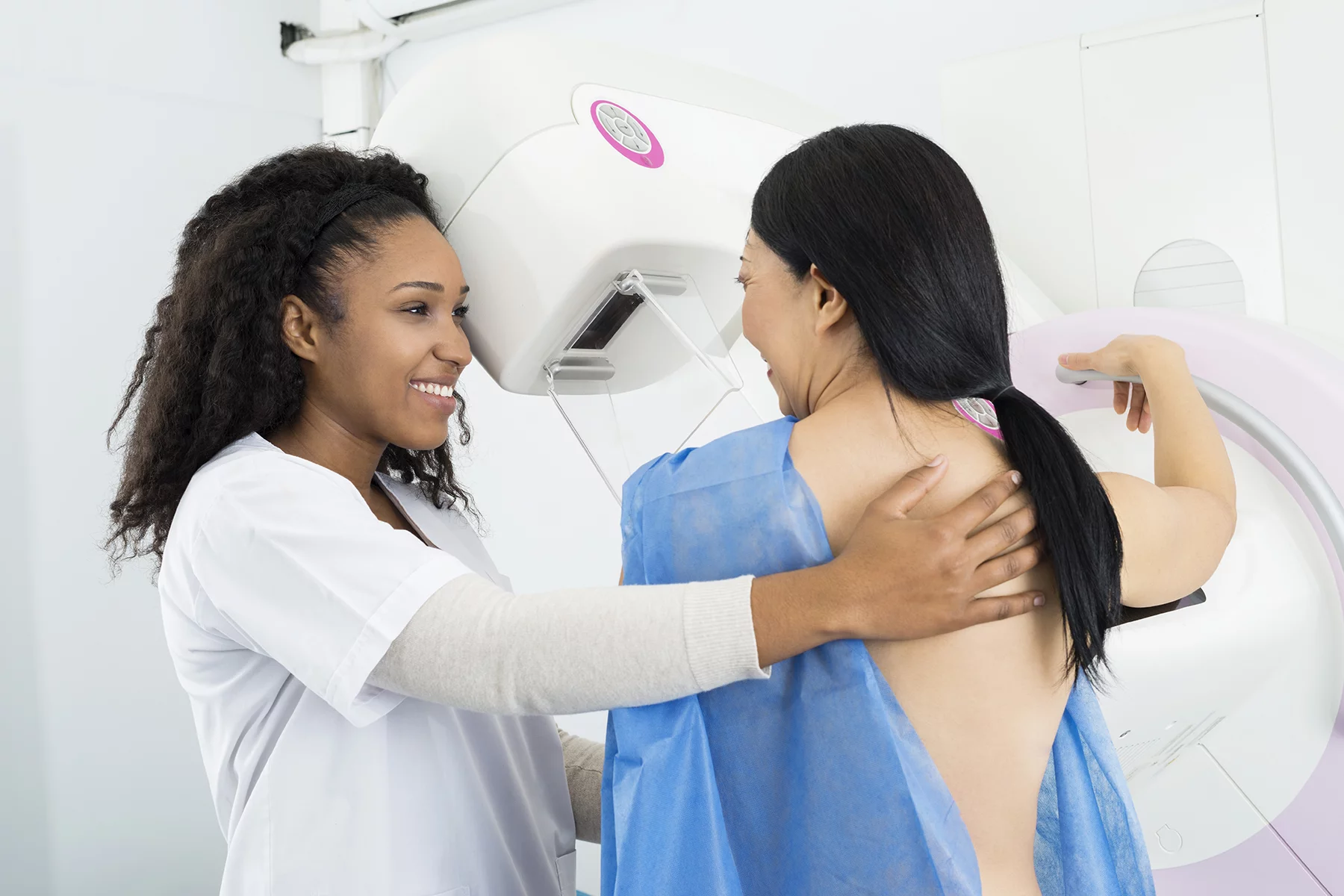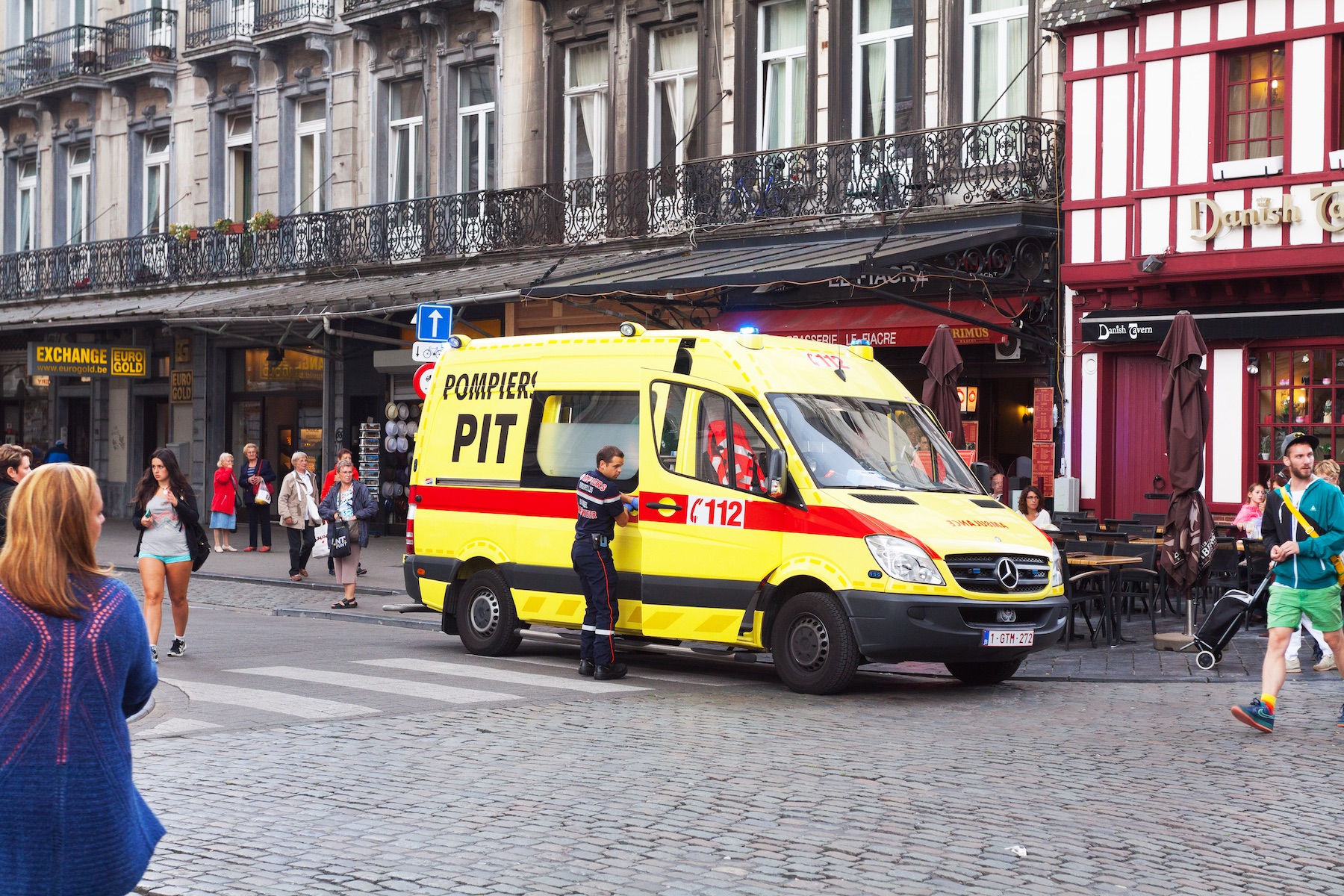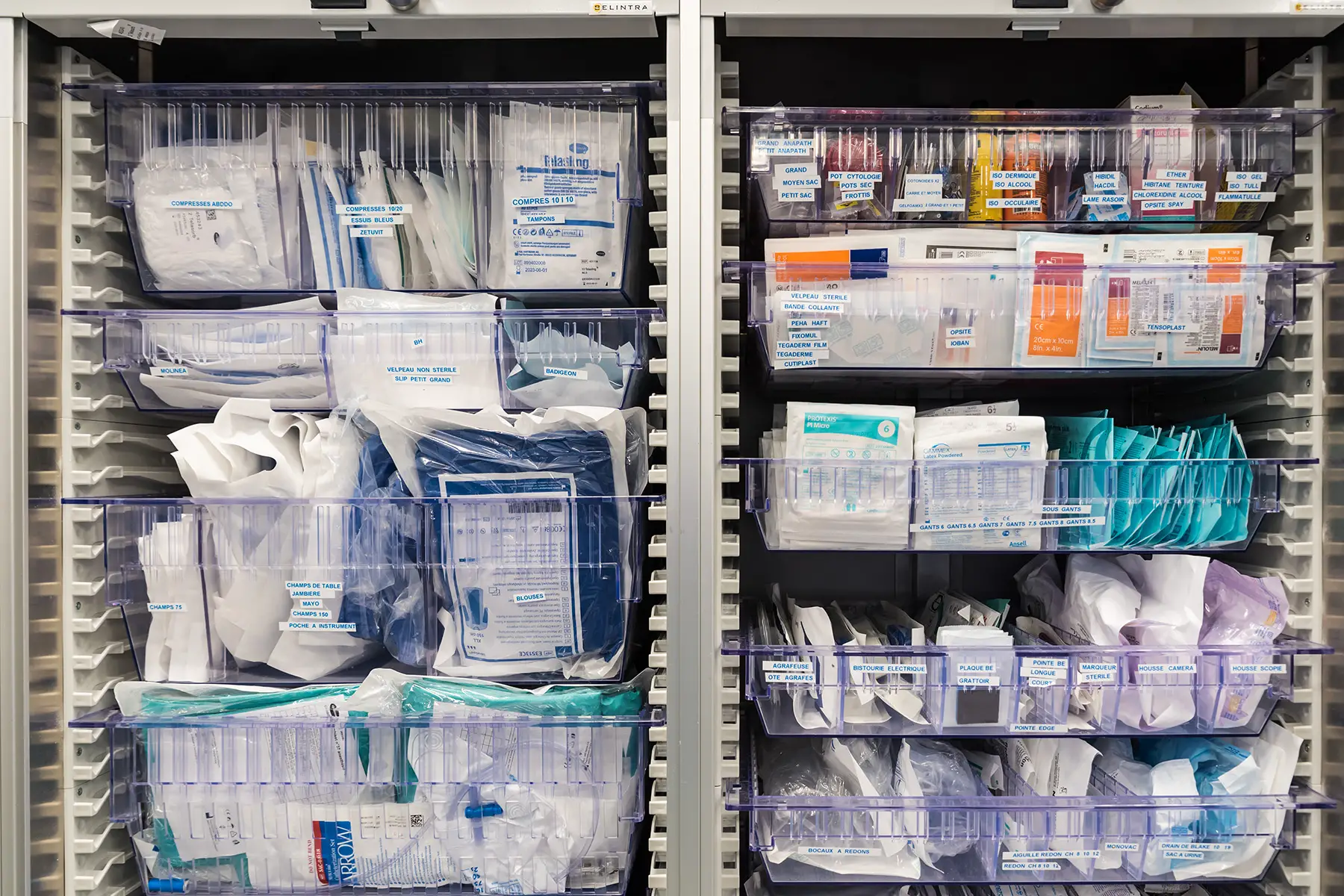Women’s health services vary from country to country, and when you move somewhere new, it can be a challenge to get to grips with how the system works in your new home.
Whether you’re having a baby in Belgium, dealing with health issues, or just wondering how to set up Belgian health insurance, this guide will point you to the care you need. Sections include:
- Women’s health in Belgium
- Accessing women’s healthcare services in Belgium
- Insurance for women’s healthcare in Belgium
- Gynecologists in Belgium
- Women’s contraception in Belgium
- Maternity care services in Belgium
- Breastfeeding in Belgium
- Fertility treatments in Belgium
- Abortion in Belgium
- Menopause in Belgium
- Cancer screenings in Belgium
- Sexual health in Belgium
- Availability and cost of feminine hygiene products
- Women’s clinics and healthcare centers in Belgium
- Useful resources
Cigna Global
Want access to the best private medical services in Belgium? Speak to the healthcare professionals at Cigna Global today and find a policy that’s right for you. Take advantage of their global network of doctors, specialists, therapists and more with coverage tailor-made for you and your family. If you’re starting a new life in Belgium, get peace of mind with Cigna Global.
Women’s health in Belgium
The level of women’s healthcare provision in Belgium is excellent. For the most part, it is accessible and affordable. Patients can receive treatment in both private and public hospitals.
Statistically, the self-perception of good health is rising among both women and men. While women live for around five years longer than men, reaching 84 on average, 3% of women consider themselves to have unmet needs, while this is the case for only 2% of men. These shortfalls have come about from budget cuts in recent years; often, it is quick to see a GP, but referrals can take a while longer.
Accessing women’s healthcare services in Belgium
Private and public healthcare is available in Belgium, both of which are of high quality. Anyone living in Belgium may access healthcare services. Once you have registered for Belgian social security, you can receive insurance for subsidized healthcare. Otherwise, you will need to obtain private health insurance in Belgium.
Insurance for women’s healthcare in Belgium
Belgium’s healthcare insurance model is as follows. The patient pays up-front for services and then claims most of the cost back from the insurance provider. This is the case for most regular procedures. To receive cover for having a baby, you may need to have been insured for a certain length of time.
If you are not yet insured, you should be able to access state-provided healthcare at a discounted rate with an EHIC.
Gynecologists in Belgium
Gynecologists are a keystone of women’s healthcare in Belgium. Many gynecologists in Belgium offer English-speaking services. You have the option either to wait for your GP to refer you or to book directly with a specialist.
Gynecologists in Belgium are based in clinics and hospitals and provide services such as screening for cancers and surgery. Consultation fees are often published on the wall in the reception of the practice, or can also be given on the phone when booking an appointment. What’s covered will vary according to the health insurance provider, but consultations are, by and large, covered.
Women’s contraception in Belgium
Birth control
For women up to the age of 25, all-female contraception is 100% reimbursed, including all birth-control pills and implants. To receive the pill, you will need a prescription from your GP.

For an IUD or a copper coil, this can cost between €119–€148 (€0–€40 for those under 21), and a doctor or gynecologist can fit it. Some insurance providers reimburse a large proportion of the cost.
Condoms are readily available in pharmacies and supermarkets – a prescription is not necessary. Other options for contraception available in Belgium include the patch, injection, and permanent contraception (sterilization).
Morning-after pill
The morning-after pill is available from pharmacies without a prescription. It currently costs around €16, but there are plans to make it free for all users from April 2020.
Maternity care services in Belgium
There are many maternity services available in Belgium. Doctors and gynecologists conduct prenatal care, and the provider of the service will depend on your location.
Home births and hospital births are both possible, and you and your child will have regular GP check-ups for the first few years after birth. Mandatory health insurance covers maternity care, but it’s worth checking the exact services with your insurance provider.
Breastfeeding in Belgium
It is legal to breastfeed in public in Belgium. Conservative attitudes appear to be changing, and some shops even display ‘breastfeeding friendly’ stickers. Our guide to having a baby in Belgium covers this in more depth.
Fertility treatments in Belgium
Belgium has a range of fertility treatments available. Heterosexual couples are advised to seek treatment after a year of trying to conceive unless the couple is over 35 or has reason to suspect fertility problems. Lesbian couples and single women also have access to fertility services and donor sperm banks. Your GP can refer you to a fertility clinic, but this is not always necessary.
Treatments are available for women over the age of 18, and the patient should request them before the age of 46. For IVF treatment, egg retrieval is possible until the day before your 46th birthday, while frozen embryo transfer is possible until the day before your 48th birthday.
Other fertility treatments, such as ovarian stimulation and fertility surgery, are available until the age of 46, while artificial insemination is available until the age of 48.

You can receive reimbursement for a large part of the six cycles of fertility treatment, up until the age of 43. When visiting the gynecologist, you will receive a form that requires stamping each time you receive treatment.
There are two types of clinic in Belgium: Type-A and Type-B. Type-A clinics offer many fertility treatments up to and including egg retrieval, while Type-B provides all services, including embryo transfer.
Other fertility-related services include counseling – check with your fertility clinic to see whether this is available. Some communities and websites offer support such as the Centre for Reproductive Medicine and Brussels Childbirth Trust. There is a wealth of information in English.
Abortion in Belgium
Abortion laws in Belgium
In 1990 a law was passed to allow abortion up to 12 weeks. After this, it is possible if there is a threat to the woman’s life or if the fetus appears to have a severe, incurable illness or disorder. Abortion was fully decriminalized in Belgium in 2018.
Getting an abortion in Belgium
To get an abortion in Belgium, you can ask your doctor to recommend a clinic. Otherwise, you can approach a family planning or women’s health clinic directly with identification, your social security card, and a blood group card and ultrasound test if these are available.
If you need to get in touch with a clinic, contact FLCPF (Brussels/Wallonia), Luna (Flanders), or Kaleido (East Belgium).
The costs for an abortion are often almost entirely reimbursed by the state. In hospitals and one-day clinics, an abortion can cost €32–250. Read more about getting an abortion in Belgium here.
Menopause in Belgium
For those going through menopause, GPs and gynecologists offer advice about managing symptoms, lifestyle changes, and treatments available. There are menopause clinics and centers that specialize in this area of women’s healthcare in Belgium, but it is worth checking that their services can be reimbursed, as state insurance does not cover all of them.
Services available include consultations, treatment for preventing osteoporosis, counseling, and hormone-replacement therapy. Speak with your doctor if your symptoms of menopause are impacting your everyday life, as they will be able to advise you about the risks and benefits of different treatments.
As menopause can also affect your mood and fluctuating hormones can increase the risk of depression, consider reading our guide to mental health in Belgium.
Cancer screenings in Belgium
Belgium has the highest rate of breast cancer in the world, but this could come down to effective detection. The Belgian Foundation Against Cancer is a national organization that aims to educate Belgium from a young age about the links between certain behaviors and cancer. It helps to coordinate public health campaigns and conferences, and has helplines for those affected by cancer.
How to get screened for cervical cancer
The process for cervical cancer screening varies depending on your location in Belgium. In Flanders, all women between 25–64 receive a letter inviting them for testing. Women are tested every three years. A similar scheme is still being set up in Wallonia and should be ready by the end of 2020.
Most costs for these tests can be reimbursed. Girls in the first year of secondary school in Flanders are also eligible for 80% reimbursement when they have a cervical cancer vaccination.
During the first smear test, a doctor takes a sample of cells from your uterus. The test is quick, and results come back after a few weeks. Depending on the outcome, you may need more tests, which are mostly covered by insurance.
How to get screened for breast cancer
If you are between 50–69 years and living in Brussels, Wallonia, or Flanders, you can be tested every two years for breast cancer. When you reach 50, you might receive a letter inviting you for your free screening, or your GP or gynecologist might recommend that you receive a test.

For those outside the 50–69 age range, the benefits of testing do not outweigh the risks, but you should speak to your GP if you have two or more immediate relatives who have had breast cancer, or if you have an immediate relative who had breast cancer aged under 40.
The test is carried out every two years – you can expect two photos of your breasts to be taken and examined by two radiographers. The physician usually receives results in 15 days. In 90–95% of cases, doctors note no abnormality. If your test comes back with a potential abnormality, you will receive advice on further steps and tests.
How to get screened for ovarian cancer
There are no specific country or region-wide ovarian cancer screening programs, but if your family has a history of ovarian cancer, a GP may suggest tests. A test may include an examination by the doctor, including a digital examination, an ultrasound, or a blood test.
Sexual health in Belgium
Contraception and advice on sexual health are an important aspect of women’s health in Belgium and are relatively easy to access. STI tests are available from gynecologists at varying costs, with reimbursements for some.
It’s also possible to visit the Family Planning Centers for sexual health matters. Websites such as FLCPF and Sensoa are excellent sources of advice.
Availability and cost of feminine hygiene products
Tampons and sanitary towels are readily available in Belgium but are subject to a 21% VAT rate. They cost between €2 – €5, and menstrual cups are also available online, from supermarkets and pharmacies.
Women’s clinics and healthcare centers in Belgium
There are a few private clinics specializing in women’s healthcare in Belgium. These offer a broad range of services, such as advice on women’s health concerns and gynecological treatments. It is possible to seek help on women’s health issues such as fertility, maternity, and cancer, but in some clinics, these services stretch to nutrition and plastic surgery. It is always possible to get in contact with the clinic directly.






